Can a Supreme Court Justice Be Replaced in an Election Year?
The answer is complicated.
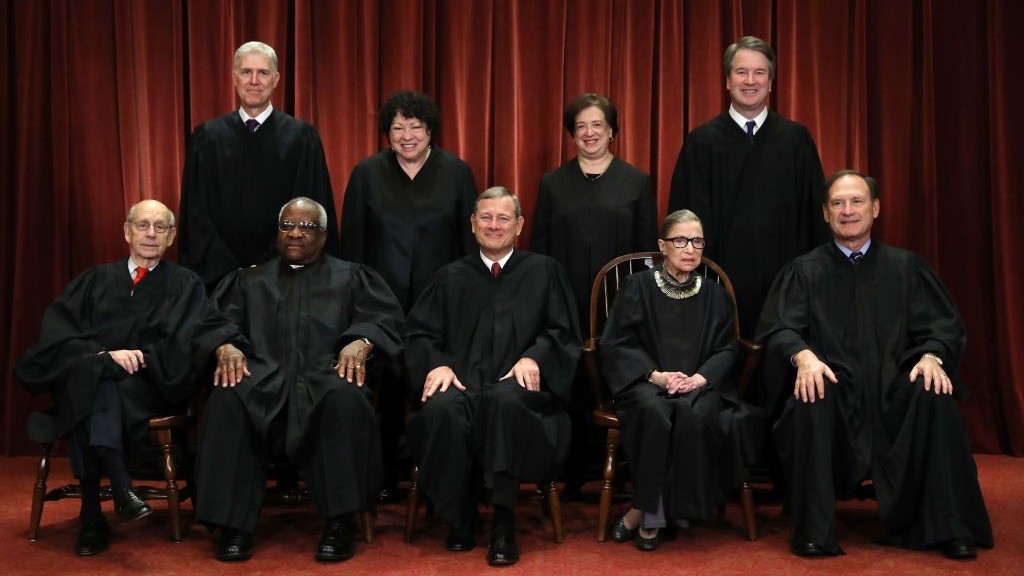
The heartbreaking death of Ruth Bader Ginsburg—a Supreme Court icon who had served on the nation's highest court for 27 years—comes at a pivotal time for the nation. The announcement of Ginsburg's death came 46 days before an election that will determine whether Donald Trump will retain his position as president of the United States, or give up the White House to Democrat and former VP Joe Biden. The big question is thus: Can a Supreme Court justice be replaced during an election year—like the one we're in?
The answer is complicated. It's also one that was posited as recently as this spring, when Ginsburg was hospitalized for gallbladder treatment. "Republicans Suddenly Cool With Election Year Supreme Court Picks," read a Vanity Fair headline; the story explained that then-president Barack Obama tried his damnedest to get his nominee Merrick Garland into the Supreme Court before his two-term presidency ended, filling the seat left by Antonin Scalia. Republicans, particularly Mitch McConnell, fought Obama on that front, stating that since it was an election year and Obama was a "lame duck" president—I'm quoting McConnell here—the next president should pick the next SCOTUS justice. That wager paid off when Trump entered the White House and picked Neil Gorsuch to fill Scalia's seat. Which brings me to...
The Thurmond rule says "no"—but it isn't really a rule.
In politics, we have something called the Thurmond rule, which is named after Senator Strom Thurmond. In the late '60s, Thurmond blocked then-president Lyndon B. Johnson's appointment of Justice Abe Fortas as chief justice, citing the closeness of the upcoming election. The "Thurmond rule" posits that a federal justice, such as a Supreme Court justice, should not be decided in the run-up to an election.
But here's the catch: The "Thurmond rule" isn't really a rule. It has no legal standing, although members of both parties have used it over the past half-century to try to justify their decisions to push through—or not—a new SCOTUS justice. Most recently, it was invoked in 2016; Republicans cited the Thurmond rule as a reason to not vote on any nominee of Obama's. Basically...
Republicans said recently that justices should not be replaced during an election year.
Mitch McConnell has personally said that the Thurmond rule isn't really a thing. In 2008, as dug up by the Last Week Tonight team, McConnell said:
That comment came up in 2016, when McConnell said of Obama's nomination of Garland: "This vacancy should not be filled until we have a new President."
McConnell's two comments are at odds, clearly—but that didn't stop the Republican Senate majority from stonewalling Garland as a matter of principle, because Garland was Obama's pick. The "rule" was taken seriously enough by Republicans at the time that the president's nominee was denied, so it would be hard to argue now that Trump deserves to push through a nominee while, potentially, at the very end of his presidency. (Update: Mitch McConnell said Friday night that Trump's nominee “will receive a vote on the floor of the United States Senate.”)
Stay In The Know
Get exclusive access to fashion and beauty trends, hot-off-the-press celebrity news, and more.
But the conclusion of the 2016 situation was less to do with an abstract "rule" and more to do with the fact that Republicans had, and have, control of the Senate. Therefore, if Trump does nominate a person to replace Ruth Bader Ginsburg on the Supreme Court bench and the Senate does choose to confirm that person, no arbitrary rule can change that.
But time is not in Republicans' favor. With only a few dozen days left until the election, that's barely enough time to do a background check on a potential future justice, let alone go through the entire process of nominating and confirming somebody. Of course, if Trump is re-elected, he will have his choice of future justices. But even if Joe Biden is elected president in November, Trump may use his remaining months in office—he wouldn't leave the White House until mid-January—to make sure that his last act as president is to get a conservative nominee through.
History shows us how SCOTUS nominations play out in election years.
On Saturday at a campaign rally in North Carolina, President Trump said to the crowd, "There have been 29 times a vacancy opened during an election year or prior to an inauguration. Twenty-nine times. That's a lot," He continued, "Every single time, the sitting president made a nomination. That included — did you ever hear of George Washington? Did you ever hear of Thomas Jefferson? Or how about the great Abraham Lincoln?"
.@realDonaldTrump" "There have been 29 times a vacancy opened during an election year or prior to at inauguration — 29 times, that’s a lot. Every single time, the sitting president made a nomination." pic.twitter.com/iR0HJCKKS0September 19, 2020
Well, this isn't exactly true. According to Senate and Supreme Court records, there have been only 16 vacancies of a Supreme Court seat, including Ginsburg's, that happened before Election Day during an election year. Ten of those suggestions ended up rejected or were later withdrawn by the president.
So while, yes, past presidents did indeed nominate someone for seats 29 times in total, not everyone fits the specific requirements that President Trump's scenario suggests.
If we really want to get into details, 10 vacancies happened after presidential elections and before a new president was sworn in. Another five vacancies occurred before the start of an election year, so nominations were then made during it. Both Thomas Jefferson and Abraham Lincoln fall under the latter.
Trump has announced his Supreme Court nominee, Judge Amy Coney Barrett, already signaling one step in the long process to replace a Supreme Court judge, so it'll be interesting to see what side of history this nomination will be on.
Related Stories
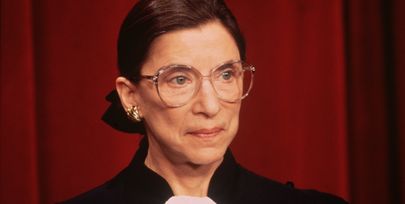
The World Reacts to Ruth Bader Ginsburg's Death
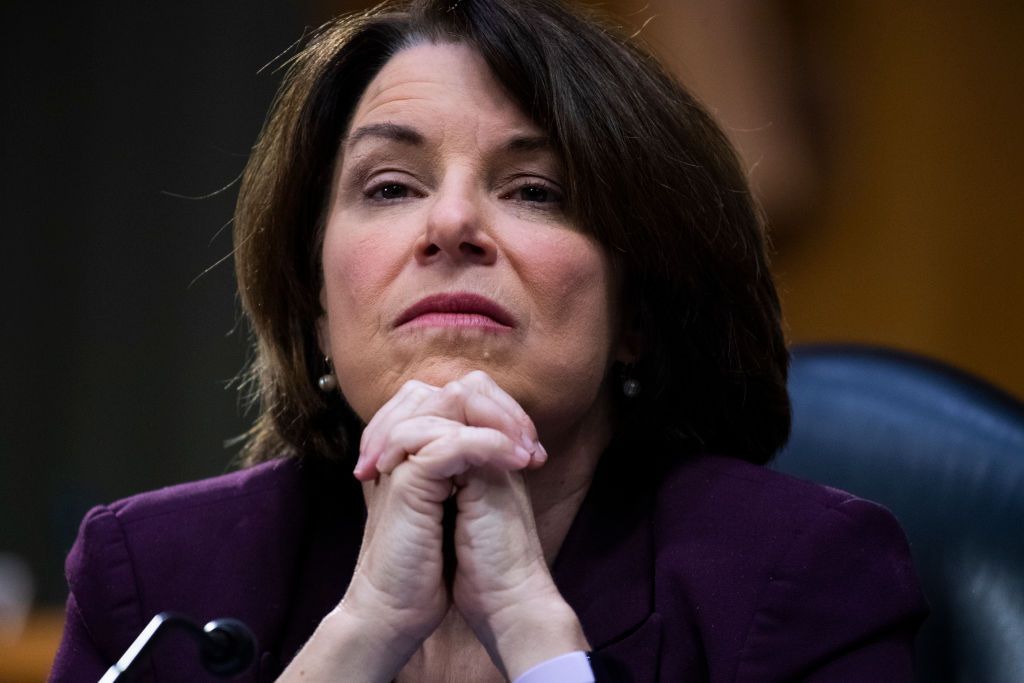
The Best Way to Honor RBG Is With Your Vote
-
 Adria Arjona Smells Irresistibly Delicious Courtesy of This $48 Hair Oil
Adria Arjona Smells Irresistibly Delicious Courtesy of This $48 Hair OilPlus the makeup routine that helps her feel "like a rebel."
By Ariel Baker Published
-
 Princess Anne's Unexpected Suggestion About Mike Tindall's Nose
Princess Anne's Unexpected Suggestion About Mike Tindall's Nose"Princess Anne asked me if I'd have the surgery."
By Amy Mackelden Published
-
 Queen Elizabeth's "Disapproving" Royal Wedding Comment
Queen Elizabeth's "Disapproving" Royal Wedding CommentShe reportedly had lots of nice things to say, too.
By Amy Mackelden Published
-
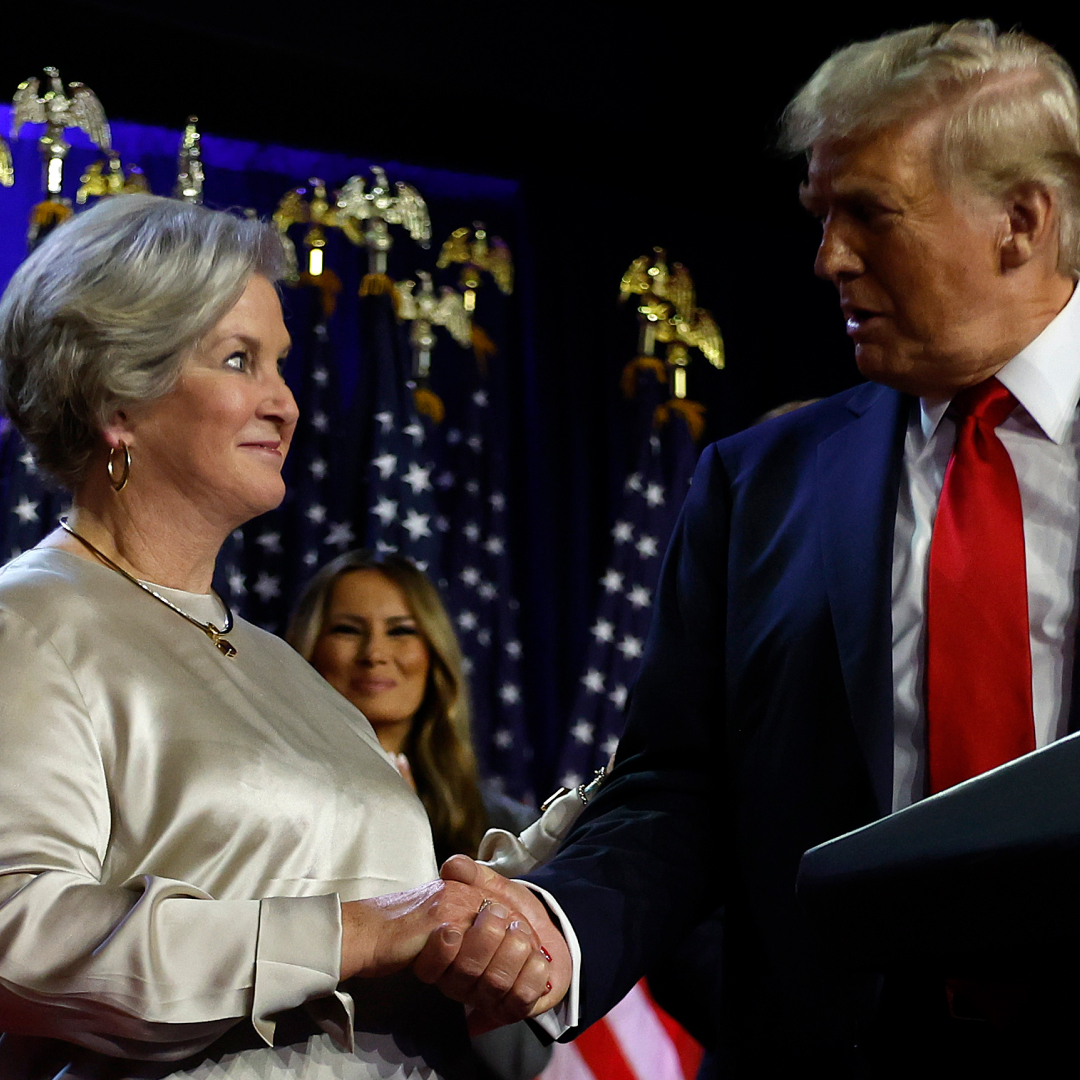 Who is Susie Wiles? President-Elect Donald Trump Names His White House Chief of Staff
Who is Susie Wiles? President-Elect Donald Trump Names His White House Chief of StaffThe political consultant helped the former president run his successful 2024 campaign.
By Danielle Campoamor Published
-
 A Nationwide Reaction to the 2024 Election
A Nationwide Reaction to the 2024 ElectionHow are people feeling in this moment? Marie Claire spoke to folks across the country to find out what they were thinking as they cast their votes and waited to hear the results.
By The Editors Published
-
 The Historic Election Victories Worth Celebrating
The Historic Election Victories Worth CelebratingIncluding momentous firsts, abortion protections, and New York's "Equal Rights Amendment."
By Iris Goldsztajn Published
-
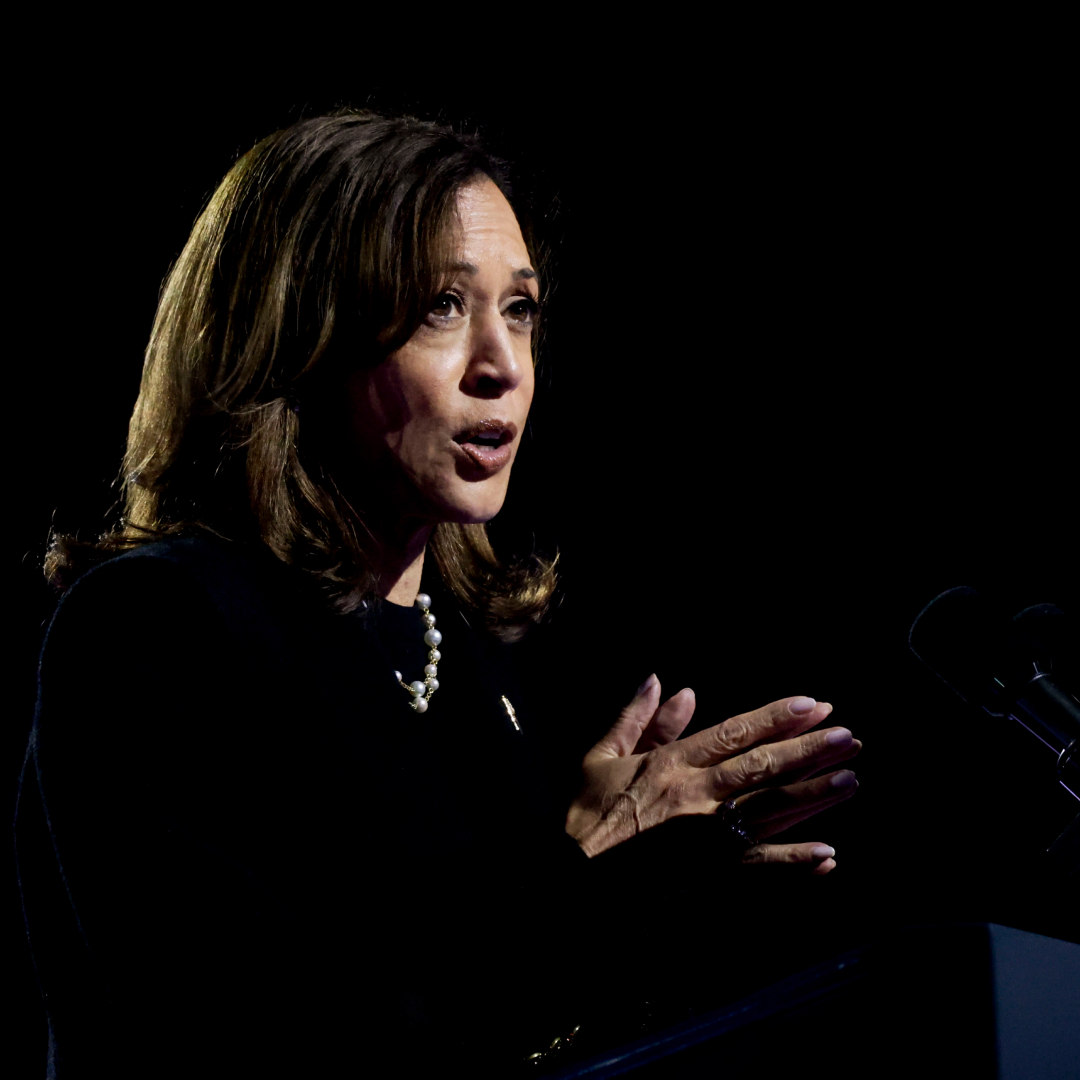 Kamala Harris Has Lost the 2024 Presidential Election
Kamala Harris Has Lost the 2024 Presidential ElectionIt's official.
By Jenny Hollander Published
-
 Donald Trump Is Ordered to Pay E. Jean Carroll $83.3 Million in Damages
Donald Trump Is Ordered to Pay E. Jean Carroll $83.3 Million in DamagesCarroll had filed two defamation suits against the former president.
By Gabrielle Ulubay Published
-
 E. Jean Carroll Triumphs Over Donald Trump In Civil Suit
E. Jean Carroll Triumphs Over Donald Trump In Civil SuitA jury found him liable for sexual abuse and defamation.
By Gabrielle Ulubay Published
-
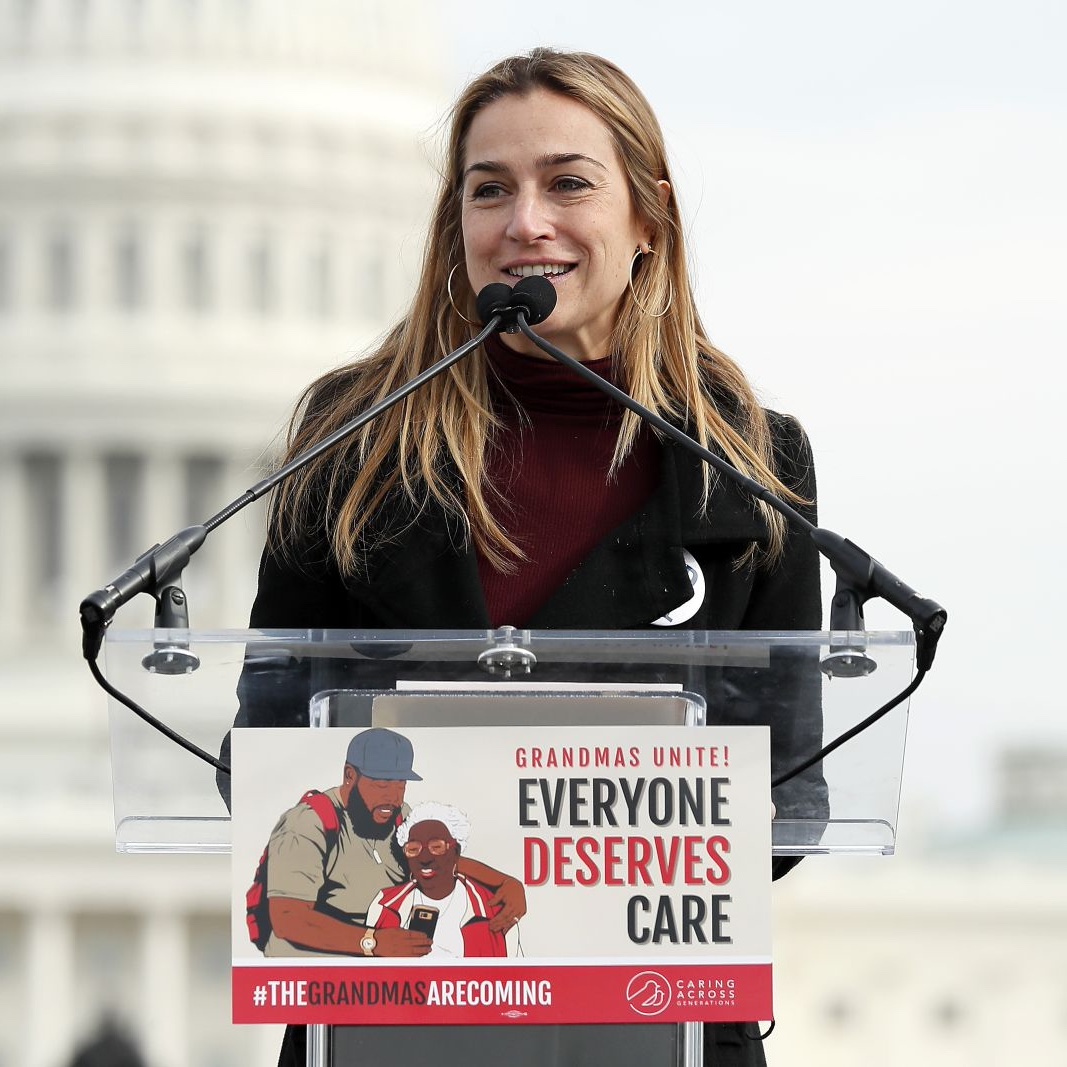 What's the Holdup in Biden's Push for Paid Leave?
What's the Holdup in Biden's Push for Paid Leave?The president is proposing $325 billion to fund paid family leave—the strongest budget proposal in history—and pushing for free universal pre-K nationwide. But he faces opposition.
By Dawn Huckelbridge Published
-
 36 Ways Women Still Aren't Equal to Men
36 Ways Women Still Aren't Equal to MenFeatures It's just one of the many ways women still aren't equal to men.
By Brooke Knappenberger Last updated